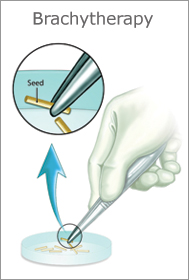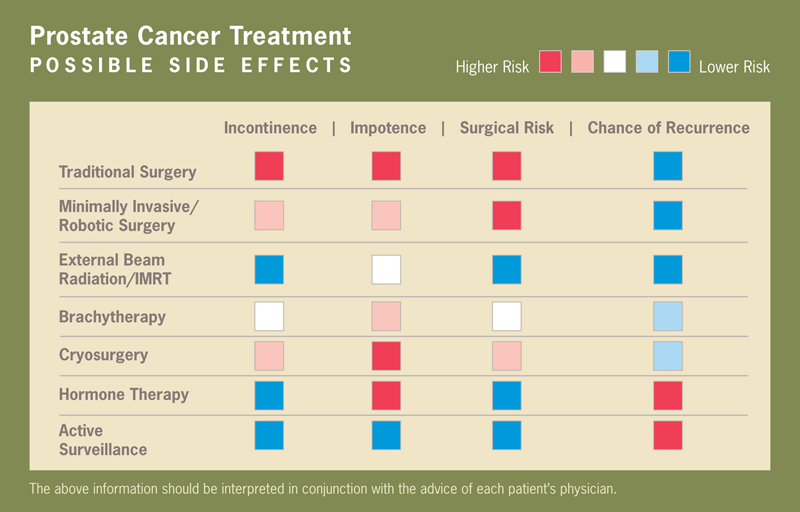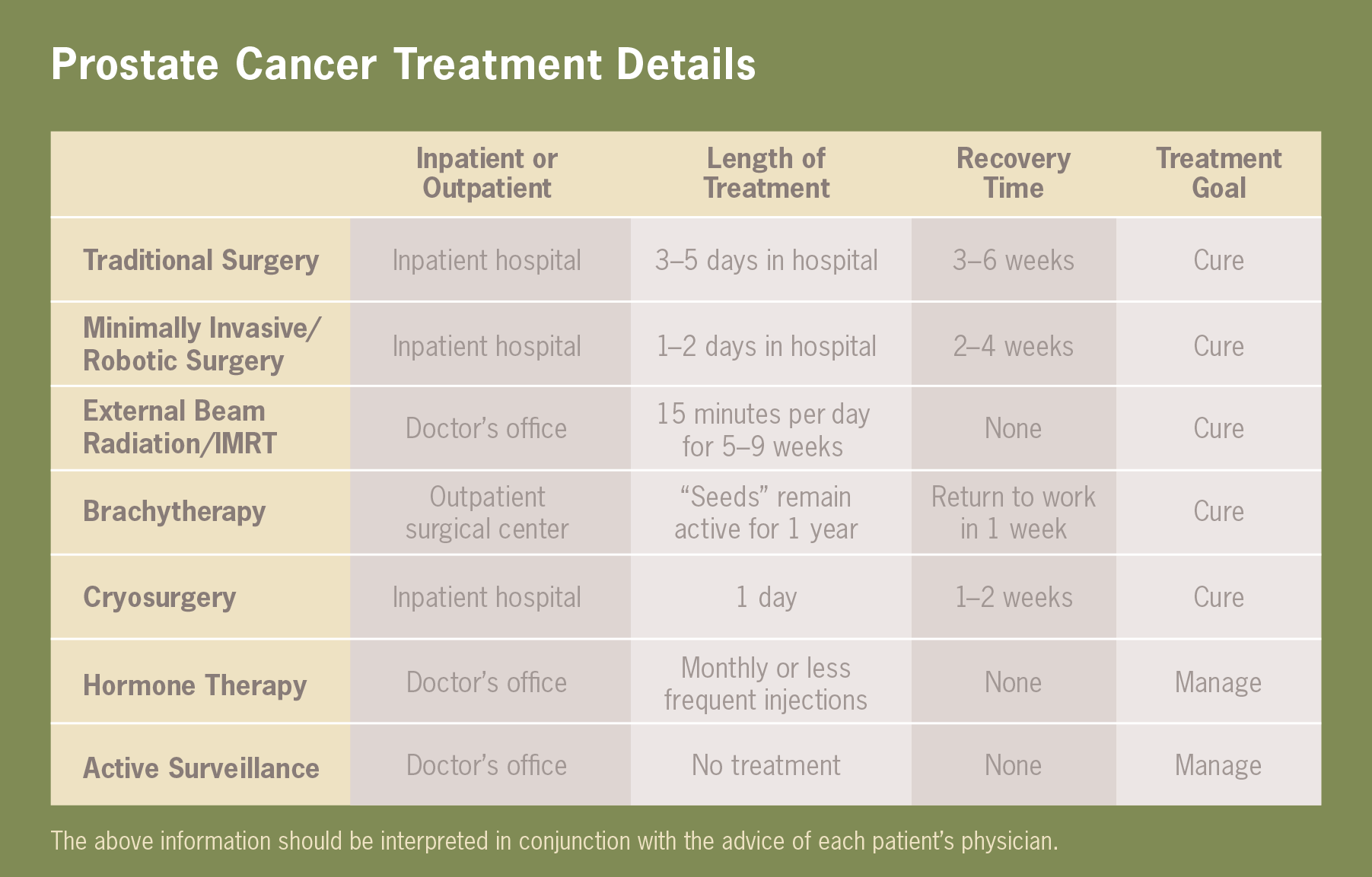Prostate Cancer Treatment
Signs and symptoms
- Weak or interrupted urine flow
- Inability to urinate
- Difficulty in starting or stopping urination
- Need to urinate frequently, especially at night
- Blood in the urine (hematuria)
- Painful or burning urination
- Continuing pain in lower back, pelvis or upper thighs
PSA testing to check for prostate cancer
A more common sign of prostate cancer is finding a nodule or abnormality during a routine digital rectal exam (DRE). Some men also show signs of prostate cancer through a PSA blood test, which measures the prostate-specific antigen (PSA).
Based on the results of the PSA and DRE, your doctor may recommend a repeat PSA or biopsy—especially if your PSA level is high, or has risen significantly in a short period of time. If your test results suggest something other than prostate cancer, your doctor will recommend additional tests. Normal PSA range is 0.0-2.5 ng/mL for men younger than 49 years old, 0.0-3.5 ng/mL for men 50-59 years old, and 0.0-4.0 ng/mL for men 60 years and older.
PSA levels higher than these may indicate prostate cancer, or could be a sign that your prostate is inflamed or enlarged. How quickly or how high your PSA levels have risen are an important factor in determining testing and treatment steps.
A PSA test and digital rectal exam (DRE) are recommended for relatively healthy men aged 40 or older who want to be screened. Knowing your baseline PSA values to compare with future PSA test results may be helpful. However, all men should be informed of the risks and benefits of early screening, based on their individual situation.
Treatment options
Thanks to the advanced radiation therapy treatment techniques available at Cancer Care of Western New York, prostate cancer can often be cured or managed, giving you many productive and healthy years. A summary of Possible Side Effects and Treatment Details can be found below. Call us today to learn more and to schedule an appointment.
Our most common prostate cancer treatments include:
External beam radiation therapy
External beam radiation therapy uses high-energy rays to cure cancer. A machine called a linear accelerator creates the radiation beam, which is typically only on for a minute or two per treatment. The actual treatments are completely safe and do not cause you to become radioactive—it is fine for family members and friends to be around you. External beam radiation includes Intensity Modulated Radiation Therapy (IMRT), Image Guided Radiation Therapy (IGRT) and RapidArc, which provides a complete treatment in less than two minutes in most cases. Our collective experience with RapidArc rivals many major cancer centers around the world, and we have treated more patients than anyone else in the region.
Brachytherapy
A minimally invasive procedure that places radioactive seeds directly in your prostate gland to destroy the cancer cells. These radioactive seeds will emit low-level radiation for about one year. During this outpatient procedure, which is performed by your urologist and radiation oncologist, you will receive a general anesthetic. An ultrasound guide will be placed into your rectum. Then approximately 20 needles will be placed through the skin between your scrotum and your rectum.


